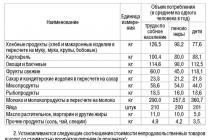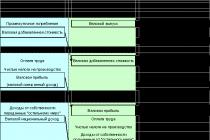With the help of the CHI policy, any resident of our country can receive free medical services throughout Russia, and not just in the clinic “assigned” to him. The presence of a policy gives the right to receive those services that are traditionally considered paid and are very expensive. the site figured out how to use free medicine and what the compulsory medical insurance policy entitles you to.
The essence of compulsory health insurance
CHI policy- This is a mandatory document that every Russian should have. Its presence is a confirmation that a person is a member of the insurance system. Most often, the policy looks like a plastic card or blue sheet.
It contains the following data:
- FULL NAME. the insured;
- Date of Birth;
- policy number and date of issue;
- the name of the insurance company.
Also on plastic card usually placed a photo of a citizen.
When you receive medical services at a polyclinic, it looks like a free procedure to you. In fact, the doctor's working hours, the cost of tests and examinations are paid by the insurance company that issued the policy.
She, in turn, receives funding from funds to which your employer makes contributions. So you are actually paying for the work of your policy with your own money.
 the federal law from 29.11.2010 No. 326-FZ "On Compulsory Medical Insurance"
the federal law from 29.11.2010 No. 326-FZ "On Compulsory Medical Insurance" Therefore, the CHI policy must be taken with you when visiting the hospital. Even if you go to another polyclinic, not at the place of residence, then if you have a policy, you are required to be accepted.
There are a lot of companies that provide health insurance services. The most famous:
- RESO-Med;
- SOGAZ-Med;
- RGS-Medicine;
- VTB Medical Insurance;
- Spassky gate;
- Ingosstrakh-M, etc.

The hospital is obliged to accept the patient regardless of appearance policy and the company that issued it.
However, in two cases refusal of admission is justified:
- the hospital is not included in the number of institutions financed under the CHI program (most often this applies to paid clinics, municipal clinics will accept such a patient in any case);
- the type of treatment is not included in the list financed by the health insurance fund.
For example, this list does not include plastic surgery services, treatment in foreign clinics and dental prosthetics.
How to apply for an OMS policy
To obtain an MHI policy, you will need to provide:
- passport or birth certificate (when issuing a document for a child);
- personal photo (when applying for a plastic policy).
You can choose an insurance company at your discretion and move from one to another no more than once a year. The issuance of the policy is free of charge.
To get it, you just need to go to the insurance office, leave an application, documents and a sample signature. old policy will be withdrawn, instead a temporary certificate will be issued, with which you can also contact the clinic.
A new policy is usually ready within 30 days. In order to pick it up, you only need a passport.

How to choose a health insurance clinic
Immediately after receiving the policy, it will be possible to attach to the nearest polyclinic at the place of residence, which participates in the system compulsory insurance.
The medical institution will have a medical record in your name, which will record your appeals, the results of examinations and tests, the doctor's conclusions, etc. Some hospitals are starting electronic cards, but in the majority - ordinary paper.
Also, some hospitals assign certain doctors to patients, so that everyone “leads” their patients and can provide them with better care.

When choosing a clinic, you should pay attention to factors such as:
- proximity;
- equipping the institution with all necessary equipment;
- the presence in the staff of the “narrow” specialists you need;
- a large number of free services;
- quality of service.
It is good if the hospital is located near the patient's place of residence. In the event of an emergency call, a medical team will be sent from a polyclinic related to the caller's area of residence (i.e. from the territorial one).
If the doctor who responds to the call has a patient card, he will be able to provide better services, as it will display important information: previous diseases, allergic reactions, chronic diseases, etc.
How to join the clinic
You can change the clinic arbitrarily, but not more than once a year. There are two attachment options.
In Moscow
Residents of Moscow can join the polyclinic via the Internet on the website of the Mayor of Moscow www.mos.ru online. It is necessary to log in to the service through the Moscow portal of public services and then select Services - Health - Attachment to an adult clinic - Get a service.

This option, apparently, is implemented only for Muscovites. Residents of other cities can join the clinic only by personally visiting a medical facility.
In other regions of the Russian Federation
Residents of other regions of Russia do not have the opportunity to attach themselves to the selected OMI clinic via the Internet, they can only personally come to a medical institution with a passport and policy, contact the receptionist and then follow the instructions of a specialist.
After assigning to the clinic, you will be able to make an appointment with a doctor online through the State Services portal.
What does the CHI policy entitle you to?
The compulsory medical insurance policy gives the right to receive medical care to the insured person under several programs.
Basic program
The compulsory medical insurance program includes two different levels: the basic program and the territorial one. The basic service includes those services that the bearer of the policy will receive in all regions of the country absolutely free of charge and without any artificial restrictions.
Among them:
- providing urgent medical care (in other words, calling an ambulance for any health problems);
- treatment of bruises, injuries, sprains;
- help with toxicity;
- treatment of acute manifestations of chronic diseases;
- help with viral diseases, etc.
Therefore, when traveling in Russia, you must definitely take a policy with you. If you catch a runny nose or catch your back, it will help you when you contact the municipal clinic and allow you to get much-needed help.
What medical services can be obtained free of charge under the compulsory medical insurance policy
Since 2018, two innovations have been introduced into the basic part of the CHI program:
- physicians should provide geriatric care – i.e. assistance to elderly patients, including urgent operations on the heart;
- the terms for providing urgent assistance to cancer patients have decreased - these services must be provided within two weeks after the detection of a tumor.
Important: doctors are required to provide emergency care even without a policy. For example, if a person breaks his leg, gets hit by a car, or gets injured. In the case of childbirth, it is similar - doctors are obliged to accept the patient, regardless of the availability of the policy.
Territorial program
Each region and each municipality establish their own list of services that are free for the policyholder.
In Moscow, for example, it is:
- planned assistance – i.e. contacting a therapist if necessary or for a preventive examination;
- provision of medicines certain categories citizens;
- prenatal diagnosis for pregnant women;
- program for the detection of hereditary diseases for infants.
A specific list of free services provided on the territory of the subject can be clarified on the website of the local branch of the Territorial CHI Fund.
Clinical examination
Another free "option" of CHI is medical examination. This is a medical examination aimed at the prevention of major diseases, including chronic and oncological ones. Timely medical examination helps to prevent many health problems.
You can undergo a medical examination with a compulsory medical insurance policy every three years, starting at the age of 21. It is carried out in a local clinic or in a special health center.

If the patient wants to undergo medical examination not in his year, then with the policy he can undergo an urgent medical examination, however, somewhat reduced. It's also free.
Provision of services under the MHI policy in private clinics
In general, the CHI policy allows you to apply for free care only in public hospitals. However, some private clinics have an agreement with insurance companies and can also provide part of the services for free (more precisely, under the policy).
You can find which private clinics your insurance fund works with on its website. The list of free services includes:
- treatment and extraction of teeth;
- screening for cancer;
- endoprosthesis;
- FGDS, etc.
Another thing is that some clinics provide such services within a certain quota or subject to availability. Therefore, you must first get advice from the insurance company, and then only go to the hospital.
Conclusion
Thus, we found out what the CHI policy gives the right to. It is issued by insurance companies, which then pay off with the medical institution. If you have a compulsory medical insurance policy, you can choose and attach to a specific clinic and systematically receive the necessary services for free. Also, with its help, you can undergo a medical examination and receive free service in some private clinics.
Mandatory policy holder health insurance(CHI) can count on passing all the necessary examinations as part of current program insurance. According to Law No. 323-FZ of November 21, 2011 “On the Basics of Protecting the Health of Citizens in the Russian Federation”, each insured person has the right to receive medical care in a guaranteed amount for free of charge in accordance with the conditions insurance contract. Are all MHI analyzes free of charge and what is included in this list?
Who pays for free tests
Medical care under the CHI policy is free only for its owner. As for hospitals and polyclinics providing outpatient and inpatient treatment to insured persons, each of these medical institutions is obliged to pay the following costs:
- service special equipment and troubleshooting;
- wages for medical workers;
- purchase of necessary reagents, tools and preparations.
All of the above insurance costs are covered by federal fund compulsory health insurance (FOMS).
Rules for obtaining free analyzes
The receipt of a particular medical service under the CHI policy must be justified. When it becomes necessary to conduct any surveys, you need to proceed as follows:
- visit the clinic along with the compulsory medical insurance policy;
- contact a specialist of the required profile;
- get a referral for free tests.
The patient cannot independently decide which studies need to be done - this is determined by the doctor. All activities that are assigned by a specialist are done free of charge in the same clinic. If the clinic does not have the opportunity to conduct some research, the patient is sent to another medical institution.
On a note! When undergoing treatment in a hospital under the Compulsory Medical Insurance program, the patient has the right to free receipt all medical services.

How to get tested in another region
The volume of medical services under the compulsory insurance contract has some territorial restrictions. Outside their region, the insured person receives medical assistance under the terms of the basic program, which operates throughout the country. Within the boundaries of his region, he is served under a program approved by the Territorial Compulsory Medical Insurance Fund (TFOMS), which covers a wider range of services.
Rules for obtaining medical assistance under compulsory medical insurance in another region:
- during departure, the policy should be with you - it is better to take a picture of it and save the photo on your phone so that you can present it to health workers at least in this form;
- when they refuse to conduct a particular study on a free basis, explaining that this is not provided for by the basic program, you need to look into Art. 35 of the Federal Law No. 326-FZ of November 29, 2010 “On Compulsory Medical Insurance in the Russian Federation” (hereinafter - Federal Law No. 326). If the basic program does not provide this species examination, then the refusal is lawful;
- when a state institution refuses to serve, call the regional TFOMS. The phone number can be found on the website of the Federal Compulsory Health Insurance Fund. It's illegal;
- when health workers claim that they work only with specific insurers, this is also illegal, since the policy is valid throughout the country.
Good to know! Analyzes are a preventive measure, which means an insured event. This is regulated by Art. 3 of the Federal Law No. 326. In accordance with the law, free research to clarify the diagnosis should be carried out throughout the territory of the Russian Federation.
In the event of an incomprehensible situation, call your insurance company - they will tell you how to proceed. The phone number is on the back of the policy.
What tests can be taken for compulsory health insurance for free
The problem is that there is no complete and exhaustive list of free CHI studies. Specialists sometimes do not even know whether a particular study falls under the insurance program. This is due to the fact that the diagnosis of various diseases sometimes requires an individual approach. To make a specific diagnosis, there is no need to puzzle over this issue - just look at the standards of medical care.
Remark: the standards of medical care are the selection of minimum effective measures for the diagnosis and treatment of a particular disease.
In order to find out if some type of research is provided for by the CHI program, you must:
- Look at Article 35 of Federal Law No. 326. For example, if it is necessary to diagnose or observe a disease of the eye and its adnexa (for example, astigmatism), this is included in the CHI program.
- Next, we are looking for a standard of medical care for this disease on the website of the Ministry of Health of the Russian Federation. We select the subsection “Diseases of the eye and its adnexa” and look for the Order of the Ministry of Health “On approval of the standard for primary health care for astigmatism”. We open it and look for the desired position in the nomenclature list.
An indicative list of standard analyzes for CHI 2020:

You can see a complete list of analyzes for compulsory medical insurance in 2020.
By eco
Approximately one seventh of married couples in the Russian Federation cannot conceive a child through natural insemination. Often this is due to the peculiarities of the physiological structure of the reproductive organs or the banal incompatibility of partners. Fortunately, the state proposes to solve this problem by providing a quota for IVF, which includes both sexes with infertility.
In order to become parents through in vitro fertilization under the CHI program, it is necessary to undergo a medical examination.
List of required list of analyzes for IVF according to CHI 2020:
- general and biochemical analysis of blood and general analysis of urine;
- fluorographic examination;
- blood sampling to determine the Rh factor and group;
- hysteroscopy and pipel biopsy;
- taking smears for the composition of the microflora from the vagina and from the urethra;
- hemostasiogram;
- blood test for homocysteine;
- hormonal panel: study of the level of hormones: prolactin, TSH, T4, in case of menstrual dysfunction - FSH, cortisol (important to eliminate the stress factor), estradiol, metanephrine and normetanephrine.
- blood sampling to detect TORCH infections (syphilis, HIV, hepatitis, herpes);
- PCR of vaginal discharge for herpes virus and cytomegalovirus;
- microbiological analysis for chlamydia, mycoplasma, ureaplasma is also included in the compulsory medical insurance policy for IVF;
- smear cytology from the cervix and cervical canal;
- detection of antibodies to the rubella virus;
- Ultrasound of the pelvic organs and the thyroid gland;
- Ultrasound of the mammary glands - up to 35 years, mammography - after 35 years;
Research for men:
- blood test for TORCH infection;
- spermogram;
- PCR of discharge from the urethra for herpes virus and cytomegalovirus;
- the CHI policy also includes seeding or PCR for chlamydia, ureaplasmosis, mycoplasmosis;
- taking swabs for flora from the urethra;
- blood sampling for Rh factor and group.
The shelf life of the results of the above studies is from 3 months to one year. If there were unsuccessful IVF attempts or interrupted pregnancies before the procedure, partners are advised to undergo a blood test for a karyotype.
Details about and all sorted out in separate articles on our website.

During pregnancy
Expectant mothers also have the right to conduct tests under the compulsory medical insurance policy. To do this, you must be registered with antenatal clinic and visit your OB/GYN regularly.
The list of standard studies includes:
- clinical blood and urine tests;
- blood chemistry;
- allergen tests (in the presence of skin reactions and mucosal reactions)
- research for the detection of infectious diseases;
- detection of antibodies to viral infections - measles and rubella;
- blood sampling for Rh factor and group;
- blood sampling for TORCH infection;
- hormonal panel: hCG, estrogen, progesterone, prolactin.
If the doctor sees the need for any additional studies, they are carried out on a paid basis only when the clinics providing services under the CHI program do not have the appropriate equipment, tools or reagents.
Refund policy
It happens that the insured person takes a series of tests on his own initiative, so as not to waste time visiting the clinic. Accordingly, payment for the research carried out is made from his own pocket. In such a situation, it is extremely difficult to justify the need to provide free medical services. There is still a chance to return the money spent, but for this you need to do the following:
- keep all receipts for payment for medical services provided on a paid basis;
- bring them to the insurance company and find out if the holding this study under the CHI program;
- if the tests are included in the list of free tests, you need to write an application for a refund and indicate in it the details of your bank account for a refund.
The above algorithm will take effect only when the patient has a referral from a doctor for paid tests. Otherwise, it is almost impossible to return the spent funds, because the state cannot pay for all studies conducted without a referral, and only on the basis of the insured person's own initiative.
Important! In order to prove your case, first of all you need to know your rights. If a doctor or insurer insists that the required analysis is not included in the MHI program, this can be checked on the website of the territorial MHIF or contact regulations. Some unscrupulous health workers deliberately send patients for paid tests, and then get their share for it.

Conclusion
Summarizing the above, the following conclusion suggests itself: almost all tests prescribed by a doctor can be carried out free of charge, because there is simply no exhaustive list. The specialist acts in accordance with generally accepted norms and standards - if a certain study is needed to confirm the diagnosis and this is supported legislative act, then this does not go against the terms of the compulsory insurance program.
The patient, in turn, must: know his rights as an insured person, be able to find information of interest in legislative framework and on websites, have a policy with you and resolve all disputes with the insurer.
You can learn more about the system and your rights in our next article.
Please rate this post and like it.
Our lawyer is always in touch, who can provide full protection of your interests in various life situations. Sign up for a free consultation in a special form right now.
Compulsory health insurance (CMI) provides citizens of the Russian Federation with high-quality medical care.
We will tell you what help you can get, how to do it and where you can turn if your rights are violated.
Health insurance is the main form social protection citizens of the Russian Federation in the field of health care.
The essence of insurance lies in the fact that upon the occurrence insured event the patient's treatment is paid by the insurer. There are many medical insurers in Russia, and the most famous among them are Max-M, SOGAZ-Med, ROSNO-MS
This article describes in detail the rights of patients under the system of compulsory health insurance. After reading the content of the article, you will find out in which cases free medical care is provided.
Sometimes a patient may be denied medical care, and he will have to protect his rights. Learn more about who can help with this.
Features of insurance
Compulsory medical insurance is a set of state measures that are aimed at providing free medical care to a citizen of the Russian Federation in the event of an insured event.
To pay for assistance, special funds of compulsory medical insurance are used. The insurance program includes legal, economic and organizational measures.
The state not only provides free medical care for the patient, but also ensures that it is of high quality and occurs according to the law.
Compulsory health insurance occurs under the CHI policy. This policy has a single state sample, which is approved by Federal Law No. 326 "On Compulsory Medical Insurance".
The current policy was put into circulation in the spring of 2011. Any violation of health is considered an insured event under compulsory medical insurance.
A person who for some reason does not have compulsory medical insurance cannot claim free medical care
What does the Law say?
The Law "On Health Insurance of Citizens of the Russian Federation" in Article 15 says that insurers are obliged to protect the interests of the insured.
Based on this, CHI is a set of rights, interests and obligations of a citizen. He has only one obligation - to insure under compulsory medical insurance.
In the "Fundamentals of the legislation of the Russian Federation on the health care of citizens", in articles 19 and 20, the rights of patients are formulated:
- for free medical care in the healthcare system, including municipal
- to obtain information about factors that affect health
- for a range of additional medical services
In the same document, in articles 30-32, it is indicated what the patient can count on:
- respect and humane attitude of medical staff
- for treatment and examination in conditions that comply with sanitary and hygienic standards
- for additional consultations and consultations at the request of the patient
- to relieve pain with the help of available means and methods
- on the confidentiality of information about seeking medical care
- to keep confidential information about the state of human health
- refusal of surgical and other interventions
The Law "On Health Insurance of Citizens in the Russian Federation" in Article 6 provides the following rights:
- for medical insurance on a mandatory and voluntary basis
- at the choice of an insurer at one's own discretion
- choice of doctor and desired medical institution
- to receive assistance throughout the country, even far from the place of registration
- to receive medical care of the volume and quality that corresponds to the insurance contract
- to file a claim in case of refusal of medical care or its inadequate quality, even if the claim is not provided for by the insurance contract
These are only the basic rights of patients under CHI. To learn all the rights, we recommend that you read the specified documents and articles in full.
Who provides protection and how?
Protection of rights is provided by insurance medical organizations. Their duty under the law is to defend the interests of insured citizens of the Russian Federation.
Insurers are obliged to pay for medical care if it is provided in accordance with the compulsory insurance contract.
This is the main means of ensuring the protection of patients' rights. Other responsibilities for protecting the rights of patients include:
- quality control, volumes, terms and conditions of medical care
- conducting medical and economic examinations and control, if necessary
- creation of reports on the results of control or examination
Insurance medical organization assumes full responsibility for protecting the rights of the patient. If these obligations have not been fulfilled or have been insufficiently fulfilled, then the citizen may file legal action to your insurer.
What medical assistance can be obtained?
The basic CHI program includes:
- primary health care
- ambulance health care
- preventive care
- additional medical care
Find out which extra help offered under the compulsory medical insurance policy in your city, it is possible in any public medical institution. Specialized ambulance (sanitary and aviation) is not included in the basic CHI program
How to get
In order to receive free medical care, a citizen of the Russian Federation must submit his CHI policy to the medical institution.
Before this, you need to make sure that the insured event (health disorder) complies with the terms of the insurance contract.
Medical services should be chosen independently, although on the recommendation of a doctor.
If you give the right to choose services to employees of the institution, then they may go beyond the scope of the insurance contract, and the patient will have to pay. General algorithm of actions:
- Contact a medical institution
- Show current policy CHI
- Choose the medical care that is included in the scope of the insurance contract
- Get medical help
If a person becomes ill on the street, and he does not have a CHI policy with him, he will still receive free medical care. The law defines emergency assistance as free, even if it is not included in the terms of the insurance contract.
What to do in case of refusal?
AT public institutions failures are extremely rare. But municipal and other medical institutions “sin” from time to time.
They may refuse free treatment, referring to the cost of medicines or other factors, and may provide medical care with violations, of poor quality.
Where to go in such a situation?
The overwhelming majority of citizens of our country restore their health using the possibilities of the system of compulsory medical insurance (CHI). Examination by specialists, medication, dental treatment, and so on have become familiar realities of our days. But CHI provides an opportunity to carry out more responsible medical interventions, including surgical ones, free of charge. You will learn how to make an operation under the CHI policy below.
What operations can be done under the CHI
Periodic changes are made to the list of free surgical operations aimed at expanding the ability of citizens to restore health through surgical intervention. An updated list of free transactions is sent to registered CHI medical institutions and insurance companies. The information is public.
Free access is provided by placement on the information stands of medical institutions, their websites, as well as informing, at the consultations of the attending doctor, which operations are performed free of charge.
The list of free operations under the MHI policy for 2020 includes the following interventions:
- Surgical operations on the eyes:
- with cataract of the lens of the eye;
- intervention for strabismus, including strabismus in children;
- traumatic deformation of the retina;
- glaucoma;
- detection of congenital anomalies.
- Sentoplasty (correction of the nasal septum), with the following indications:
- impaired respiratory function;
- lack of smell;
- swelling of the mucosa;
- not resistant to SARS;
- not standard breathing, snoring;
- excessive dryness of the sinuses, systematic pain.
- Removal of the gallbladder in the presence of cholecystitis, functional disorders (cholesterosis, gallstone manifestations).
- Operation Marmara (diseases of the veins of the organs of the reproductive system of men) with indications:
- varicocele of the second and subsequent stages;
- impossibility of fertilization (sperm excretion);
- painful sensations;
- aesthetics;
- scrotal tissue changes.
- Joint arthroscopy.
- Operations on the veins in venous diseases.
- Diseases of the field of gynecology.
- Thoracic (oncology, pathological changes in the lungs).
- Stop valgus.
The list provided is not complete list gratuitous surgical interventions are permissible, in the presence of a compulsory medical insurance policy. However, cosmetic interventions (for example: bariatric surgery) are not included in free medical care.

Who can get free health care
All categories of citizens who have concluded, established order, MHI agreements, including:
- having labor relations with enterprises, organizations in the sphere of production, consumption and distribution of material goods;
- receiving funds or remuneration under licensing, scientific, publishing alienation agreements;
- private entrepreneurs and other categories providing for themselves independently;
- leaders and participants of farm enterprises;
- community members involved in folk crafts and tribal economic activities;
- citizens who do not have a job (children under the age of eighteen, adults on pensions, teenagers who are in training, the unemployed, a guardian of a child under the age of three, caring for a disabled person of the first group or an adult over the age of eighty)
- soldiers, employees special organizations, including healthcare workers;
- foreigners legally staying on the territory of the country and engaged in labor activities, within the limits permitted by the regulatory - legal acts states;
- persons who, in accordance with the established procedure, have received the status of refugees.
Institutions of the Ministry of Health do not have the right to refuse to provide emergency free medical care, including specialized, to persons who have not concluded an MHI agreement or with missing information about their policy on a single database of the MHIF.

Where can I get treatment for free
The above categories of citizens have the right to receive free medical care under compulsory medical insurance throughout the country, regardless of the presence of registration at the place of residence, place of stay or lack thereof, at the time of application.
By relating to the category of medical care related to planned surgical interventions, the insured person has the right to choose any specialized medical institution in Russia, in his opinion, that is capable of performing the operation with the best results. At the same time, the medical institution must, in accordance with the established procedure, participate in the MHIF system.
Medical institutions (hospitals, polyclinics and others) become participants in the system after concluding a cooperation agreement with the CHI. If there is a quota, they cannot refuse the possibility of performing an operative intervention if the operation is indicated.
It should be remembered that the length of the waiting period for a planned operation in another region, as well as at the place of residence of the patient, can take a significant amount of time. This is due to the strict quota of operations, due to significant financial costs for its implementation, and a large number referring patients.
When choosing a medical institution for a planned operation, the following should be considered:
- the insurance coverage covers only the operation;
- the quality of work of practicing surgeons is approximately equal, both in polyclinics of the capital regions and local medical institutions, where in the first case the operation is accompanied by the most advanced equipment, in the second - experience in performing multiple operations;
- waiting time for a free operation, where in large cities it can take a long time (up to a year or more), during which side effects can be provoked, while waiting for local surgery will take up to several months;
- the cost of paying for services not covered by compulsory medical insurance.
Of no small importance is the opportunity to consult during postoperative rehabilitation with the surgeon who performed the operation. If the medical institution is located at a considerable distance, additional cash costs are expected.

How to make an operation under the CHI policy for free in steps
Obtaining surgical care under compulsory medical insurance coverage is a simple procedure that includes the following steps:
- Visiting the attending doctor in the attached medical institution. The field of study of analyzes and examination of the patient, he evaluates the indications for surgical intervention. If they are available, the doctor is obliged to write out a referral to a specialized clinic. The patient has the right to declare his referral for surgery to a pre-selected medical facility.
- After receiving the referral, the patient is registered for an appointment for a consultation at the selected institution. Registration is in progress personal visit or in any other manner prescribed by the hospital.
- Arrive at the appointed time to the hospital doctor for paperwork and consultation. Provide him with a referral, an identity document, an insurance contract (policy), the results of the study and medical card. The doctor decides on the need for admission to the hospital. Explains what to do with free help and what you have to pay for.
- The decision to place, for the duration of the operation in the hospital, is accompanied by additional studies of analyzes.
- Within ten working days, the patient is notified of the date of the surgical intervention.
- On the appointed day, the patient is hospitalized.
About the quota. They are determined according to financial opportunity MHIF, territorial departments of the regions, to compensate for the expended consumables, the work of specialists and personnel during a certain number of surgical operations.
State medical institutions participating in the CHI system purchase medicines, medicines, equipment for surgical operations within the framework of the funding. Procurement is carried out on the basis of the organization of tenders. Where is the determining factor. The final delivery price is shown. Thus, when performing CHI operations, one should not count on advanced models of endoprostheses and other things.

Do I need to pay extra for services?
Surgical intervention according to compulsory medical insurance is free of charge. It includes: direct operation, anesthesia (if necessary), consumables, use of specialized equipment. The requirement of the institution for additional payment is not legal. But the patient independently finances travel to the place of the operation and back, preoperative accommodation outside the medical facility. Possibility of reimbursement additional features allowed in relation to receiving services not included in the list CHI systems, among them:
- conducting anonymous diagnostics at the request of the patient (excluding HIV);
- manipulations carried out with a visit to the patient at home (diagnosis, consultation, medical treatment), with the exception of the physical impossibility of the patient to come to the medical facility for this;
- diagnostics and medical procedures for sexual pathologies;
- speech therapy activities of the adult population;
- vaccinations, with the exception of those provided for by compulsory medical insurance;
- post-operative measures, including sanatorium, if they are not provided for by the insurance program;
- cosmetic procedures;
- prosthetics of the oral cavity, with the exception of the cases provided for by compulsory medical insurance;
- psychological support of the patient;
- methodical measures for familiarization with patronage, provision of first aid and the like.
Medical institutions that provide, along with free, paid services, are obliged to inform about their existence by posting lists and price lists on the reception stands. At the same time, when deciding on hospitalization, the patient is personally acquainted with paid opportunities to improve the conditions of stay in the inpatient department of the hospital.
The insured person has the right to contact the insurer or the MHIF to clarify the legality of claiming additional funds while in a medical institution. Paying for certain services and drugs.

What to do if you are denied treatment if you have a policy
The low awareness of the population about their rights to medical care under compulsory health insurance often leads to agreement in case of an unreasonable refusal to provide medical care or claiming additional money for procedures, including surgical operations. The situation is changed by the opportunity to get acquainted with the conditions, procedure and list of services on the official websites of the Ministry of Health and FFOMS.
Establishing the fact of a violation should be accompanied by measures to protect personal rights, including appeals:
- Management of the medical facility.
- District (city) health department.
- The insurance company that accompanies the MHI agreement.
- Territorial subdivision of the MHIF.
- Federal Office of OMS.
- Commission expert arbitration.
- Judicial authorities.
Statement of violation of the patient's legal rights when providing insurance coverage CHI is issued in a businesslike, discreet style and contains:
- information about the person whose rights have been violated;
- information on the conclusion of an insurance contract (policy);
- details of the medical institution that refused to provide medical care, or committed other violations;
- the period of medical procedures or improper maintenance in hospital treatment;
- the course of events, the circumstances that forced the patient to spend personal cash, their volume.
The application is accompanied by the medical and financial documents necessary to prove the violation (extracts from the history, receipts for paying for medicines, etc.).
You will learn more about how the system works and how to get a new sample below.
We are waiting for your questions in the comments.
For free legal advice, you can apply right now on our website. Just fill out the form.
Please rate this post and like it.
State health insurance of citizens
State health insurance of citizens is a mandatory procedure. Due to this, free medical care is provided. Insurers are bodies of territorial or federal authorities.
Citizens are persons who have, and the insurer is a municipal or village budget. What is included in the free service with an MHI policy?
Professional assistance from medical professionals can be obtained free of charge. Moreover, the planned examinations are carried out in the territory where the person is insured, that is, in order to receive the services of specialists, it is necessary to purchase a policy. The accrual of insurance is based on contractual obligations. The issuance of the policy is carried out directly in organizations, enterprises or funds located in different areas.
For each locality, a register of medical services is approved. Any hospital or clinic has this list, agreed with the municipal or regional authorities.
The current program includes the following areas of assistance:
- first medical;
- specialized;
- ambulance;
- used in the treatment of incurable pathologies.
These directions are determined by regulatory documents.
About types of assistance
Types of first aid, and which specialists provide it:
- Nurses provide medical and sanitary support to the patient.
- Paramedics or obstetrician-gynecologists provide first aid.
- Medical assistance is provided by local doctors, including general practitioners and pediatricians.
First aid is provided by medical staff in the clinic, directly at the patient's home or in a day hospital.
Specialist responsibilities include:
- reception of a citizen;
- appointment of procedures to clarify the diagnosis;
- determination of the name of the disease;
- appointment of complex therapy;
- recovery control.
 Moreover, the purchase of medicines does not fall into the list of free services.
Moreover, the purchase of medicines does not fall into the list of free services.
Specialized medical care is provided when the patient is under observation in a day hospital.
These include drips, injections, massage, physiotherapy, and surgery that does not require hospitalization.
Ambulance services are divided into:
- Specialized and urgent. That is, the deterioration of the citizen's well-being does not threaten his life as a whole.
- Emergency urgent or emergency. The condition of a citizen is dangerous for his life.
In the presence of acute diseases, hospitalization is prescribed, namely:
- vascular hemorrhages;
- heart attacks;
- in case of poisoning;
- injuries;
- infectious pathologies.
According to the order of the Ministry of Health, in the next two years, a full medical examination of all Russian citizens will take place. As a result of this survey, each person will be assigned a specific health group.
If any chronic disease is detected, it will be obligatory to undergo a medical examination as many times a year as necessary based on the diagnosis.
If a person misses this examination, he will receive a message about this in the form of an SMS message. According to the introduced rules Insurance companies will have to process appeals and complaints of citizens and provide assistance in case of disputes.
If the patient has doubts about the quality of the medical services provided to him, the insurance workers will have to appoint an examination.
Amendments will be introduced to the Labor Code, which will legislate the annual additional day of vacation. This day will be provided to employees from 40 years of age to undergo a medical examination while maintaining their average earnings.
The policy can be issued in paper form, as before, or in the form of an electronic card, in the presence of which in medical institutions it will not be necessary to present a passport. The temporary policy will be valid for 45 days.
Modern Assistance Programs provide for:
- Providing free medicines to patients with chronic pathologies.
- Surveys of workers employed in hazardous or difficult conditions, as well as those whose activities are related to food.
- Ensuring control over the condition of young children, including those under guardianship or orphans.
- Examination of pregnant women in anticipation of childbirth.
- Examinations of only born babies for hereditary pathologies.
Pregnancy care
The policy provides women with the right to free medical care while they are expecting a baby. qualified assistance. The document provides for the possibility of choosing a clinic and a doctor for the expectant mother while waiting for the baby.
Upon presentation of the policy to the clinic, a woman has the right to a whole range of procedures and examinations, which include:
- therapeutic or prophylactic procedures.
- Home visiting nurse.
- Research of biomaterial in specialized laboratories.
- Hospitalization, if necessary.
- Diagnosis of pathologies of the unborn child.
- Preparing for .
- Rules and recommendations for breastfeeding.
- Consultations of specialists of a different profile.
- The choice of a gynecologist with the consent of the specialist.
- Preventive, therapeutic and diagnostic measures in special organizations that have the right to engage in this activity.
- Pain relief if surgery is needed.
- Ensuring the protection of health information.
- The right to refuse assistance.
- Presence at the birth of relatives or friends.
If a premature baby is born, then free program such children are cared for, and organ transplantation is performed.
Benefits in dentistry
Dentist services are quite expensive, so many people are puzzled about what kind of care they are entitled to receive without paying. To do this, you must have health insurance.
In each territory there is an individual Program, according to which dental services are provided, and throughout Russia only provision is made for the provision of emergency care.
Specialized dental care covers:
- Treatment in district clinics.
- Treatment of babies in children's clinics.
Moreover, a list of services must be approved in each institution, and the patient must be informed:
- About the varieties of services.
- About the working time of specialists.
- About the telephone numbers and the locations of the insurers.
- About the benefits.
Many private medical institutions also provide services without payment, and you can learn about this from the operators.
For children, the following types of services are provided:
- restoration and tooth enamel, not affected by caries;
- silver treatment and remineralization of teeth;
- reception and services of an orthodontist.

Free service
Free adult service includes:
- doctor's appointment, specialist consultation and examination of the oral cavity;
- treatment of pathology of periodontal disease and gingivitis, caries and pulpitis;
- elimination of exacerbation;
- build-up of hard tissues of a tooth with a damaged root;
- surgical interventions;
- cleaning teeth from stones;
- straightening of the jawbone;
- removal of decayed teeth;
- radiography;
- treatment of salivary glands;
- physiotherapy;
- local and general anesthesia.
Medicines can be given free of charge if they are on the list of free medicines approved at the regional level. Usually, these are the means of domestic production.
Complaints about specialists
If there are controversial issues and conflict situations are brewing, you can file a complaint with the doctor.














